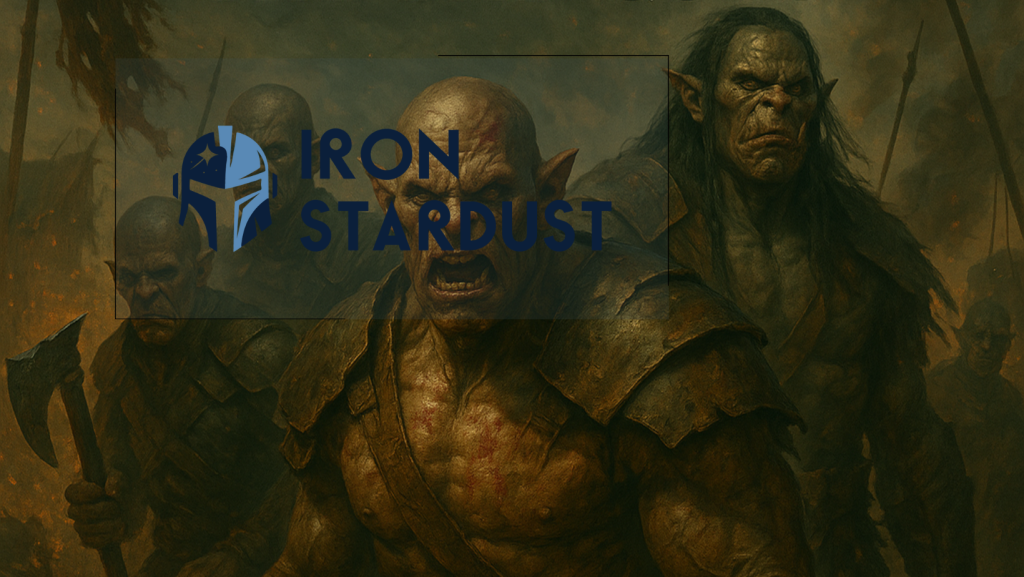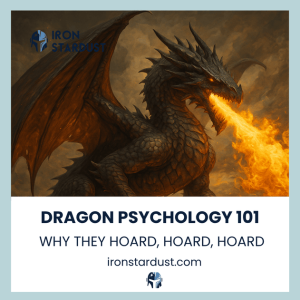
Orcs. Just hearing the word might make you think of snarling faces, crude weapons, and lots of shouting. But why is that? Why do orcs always end up cast as the villains in fantasy stories, games, and films?
It’s time to ask the big question:
Are orcs truly evil—or have they just had a really bad PR team for the past hundred years?
Where Did Orcs Even Come From?
The orc as we know it today largely comes from J.R.R. Tolkien, author of The Lord of the Rings. He described orcs as monstrous soldiers serving the Dark Lord. They were cruel, ugly, and loved violence. And unfortunately, that image stuck.
But Tolkien didn’t invent orcs out of thin air. He was inspired by older creatures from myths and folklore—goblins, demons, and wild men from ancient stories. He gave them a name (orc) and a very specific job: be evil.
Pop Culture Made Them Permanent Villains
Thanks to Tolkien, fantasy writers, game designers, and filmmakers had a ready-made enemy: the orc.
You’ll spot them everywhere:
- In The Lord of the Rings, they’re the dark army.
- In Dungeons & Dragons, they’re chaotic and bloodthirsty.
- In video games like Skyrim, Warcraft, and Shadow of Mordor, they’re the enemies you slay by the dozen.
Even when they’re playable characters—like in World of Warcraft—they still start out rough, warlike, and scary-looking.
But Are All Orcs Really Evil?
Here’s where it gets interesting.
In recent years, fantasy creators have begun asking:
“What if orcs aren’t just evil by nature?”
Games and books are now exploring the idea that orcs might have cultures, beliefs, families—even dreams.
Take Thrall from World of Warcraft: he’s wise, peaceful, and leads his people with honor.
Or in Elder Scrolls, orcs have their own cities, traditions, and codes of conduct.
Some authors are even writing stories from the orc’s point of view, showing them as misunderstood outsiders, not monsters.
Are Orcs Just a Fantasy Stereotype?
It’s worth asking whether the way orcs have been portrayed says more about us than about them.
Orcs are often:
- Ugly
- Uncivilized
- Aggressive
- “Other”
These traits have been used throughout history to dehumanize groups of people. That’s a dangerous road—even in fantasy. That’s why more creators are working to rethink orcs, giving them depth and complexity.
Because let’s be honest: nobody wants to be judged by their face, especially if they’re green and have tusks.
Can an Orc Be Good?
Absolutely.
Fantasy is at its best when it challenges ideas, not just repeats them. Orcs don’t have to stay evil forever. They can be heroes, poets, scientists, or just a friendly neighbor with bad table manners.
So next time you meet an orc in a story, ask yourself:
Is this character really evil — or just stuck in someone else’s idea of what they should be?
Want more weird and wonderful takes on fantasy creatures?
Check out the rest of our fantasy stories and subscribe for fresh tales, strange beings, and all things cosmic and chaotic.
Dive into our Orcs world —where battles are fierce, legends are born, and every scar tells a story.





